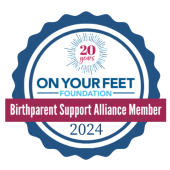
Planning to adopt and wondering how to prepare? Adoptive parenting is unique, and filled with its own joys and challenges. As new parents in the adoption community, it’s essential to develop techniques that foster a nurturing environment for your child. Understanding these strategies will not only help you bond and create a secure home but also ensure that your child’s emotional and psychological needs are met.
In this guide, we will explore various adoptive parenting techniques that every new parent should know.
What Makes a Good Adoptive Parent?
A good adoptive parent provides unconditional love, patience, and unwavering support. They practice transparent communication, respecting their child’s history and birth family connections.
Empathy and understanding are essential, especially in addressing past traumas with sensitivity. Flexibility and adaptability help meet their child’s evolving needs, while continuous learning ensures effective parenting. Creating a stable and nurturing environment, coupled with encouraging independence, helps foster confidence and self-esteem in the child.
Adoptive Parenting Techniques for New Parents
- Building a Strong Attachment
Establishing a strong attachment with your adopted child is crucial for their emotional development. This can be particularly significant if the child has experienced previous traumas or disruptions. Early bonding activities include skin-to-skin contact, consistent caregiving, and maintaining eye contact. These small gestures can make a big difference in your child’s sense of security and belonging.
- Creating a Safe and Predictable Environment
Children thrive in environments where they feel safe and their daily routines are predictable. Adoptive parents should strive to create a home that offers stability and consistency. This means having regular meal times, bedtime routines, and clear expectations. A structured environment helps children understand what to expect and reduces anxiety.
- Trauma-Informed Parenting
Many adopted children come from backgrounds where they may have faced neglect, abuse, or significant loss. Understanding the signs of trauma is vital. These can include:- Difficulty trusting others,
- Hypervigilance,
- Regression in behavior
- Difficulty forming relationships
- Effective Communication Techniques
- Active Listening: One of the most important skills adoptive parents can develop is active listening. This means truly hearing what your child is saying without interrupting or judging. Reflect back on what they say to show understanding and encourage open communication. For example, “It sounds like you’re feeling upset because of what happened at school today.”
- Age-Appropriate Discussions About Adoption: Open and honest communication about adoption is key. It’s important to discuss adoption in an age-appropriate way and be prepared for questions. Use language that your child can understand and reassure them that it’s okay to talk about their birth family and adoption story. This openness will help build trust and acceptance.
- Celebrating Cultural Heritage
For many adopted children, maintaining a connection to their cultural heritage is essential for their sense of identity. Adoptive parents should celebrate and incorporate elements of their child’s culture into daily life. This can include learning about cultural traditions, celebrating cultural holidays, and fostering relationships with others from the same background.
- Promoting Self-Esteem
Building self-esteem in adopted children involves recognizing their strengths and encouraging their interests. Provide opportunities for your child to succeed and praise their efforts genuinely. Celebrate their achievements and reinforce positive behaviors. This helps children develop a healthy sense of self-worth.
- Educating Yourself
Adoptive parenting is an evolving process, and there is always more to learn. Stay informed by reading books, attending workshops, and joining support groups for adoptive parents. Continuous education helps you stay equipped with the latest strategies and insights.
- Professional Support
Sometimes, professional assistance is necessary. Don’t hesitate to seek help from counselors or therapists who specialize in adoption-related issues. Professional support can provide valuable tools for managing challenges and fostering a healthy family dynamic.
Other Considerations for New Adoptive Parents
- Building a Support Network: Creating a network of friends, family, and support groups can provide invaluable guidance and emotional support.
- Personal Self-Care: Taking care of your own physical and emotional well-being is important to being an effective parent.
- Open Communication with Your Partner: Maintaining clear and open communication with your partner ensures that both of you are aligned and supportive of each other.
- Financial Planning: Adoption can be financially demanding, so it’s important to plan and budget accordingly.
- Education and Training: Continually educating yourself through books, workshops, and seminars on adoptive parenting keeps you informed and prepared for any challenges.
- Healthcare Coordination: Establishing a healthcare plan that addresses any unique medical and mental health needs your adopted child may have is vital.
- Community Resources: Utilizing local resources such as social services, counseling, and educational programs can offer additional support.
- Sibling Integration: If you have other children, helping them understand and adjust to the new family dynamics is important for a harmonious household.
By prioritizing these considerations alongside parenting strategies, you lay a solid foundation for a happy, healthy, and nurturing family environment.
To learn more about how you can provide a nurturing environment for your adopted child or if you’re considering adoption, visit the Adoption Center for Family Building or contact us. Our team is dedicated to supporting families through every step of the adoption process.





